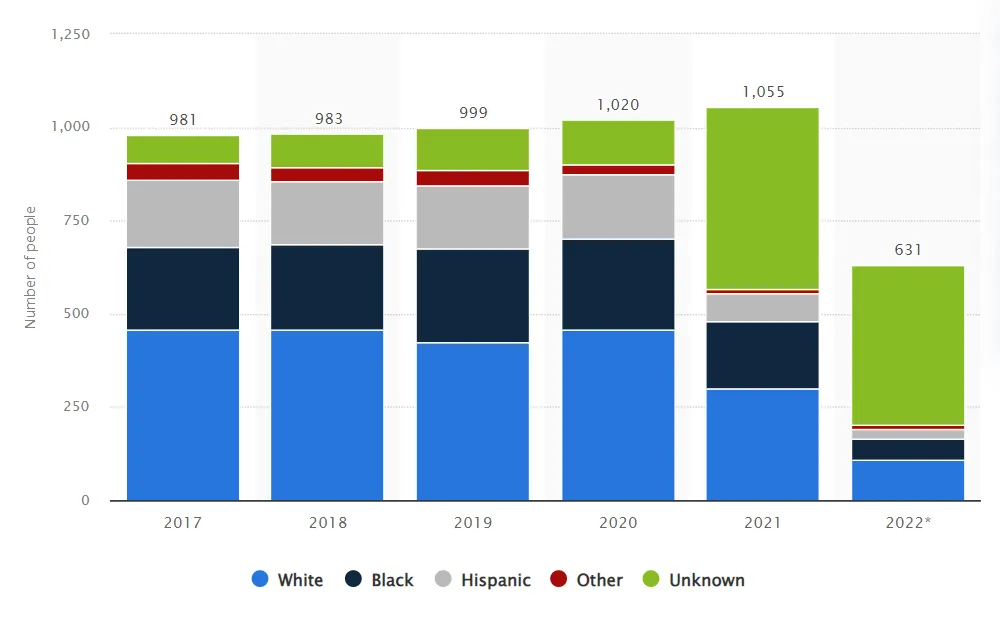
I was reading an article in the Finnish news about a person shot (not killed) by police in Finland last year, who is being charged with seven counts of attempted murder, for shooting at police. At the end of the article, there was a little factoid added about deaths through use of force by police.

Yes, that is effectively eight people in 22 years. In general, police tend to "aim for the leg" in these cases and even when there are violent, knife-wielding people who have killed people, they have incapacitated them, not killed them. Also, to become a police officer, it is a university degree.
The Police University College is responsible for overall police training and student selection, for organizing degree and advanced studies, and for applied research and development in the police field. The institution is under the guidance of the National Police Board and ultimately the Interior Ministry. It provides a bachelor's and a master's degree in police services and specialized courses, such as driver's courses and an executive MBA in policing. source
And not only that:
in 2016, the college received 4,318 applications for the bachelor's degree programme's intake of 300 students—an admittance rate of 7.0% source
This probably has something to do with the outcomes of the police force in Finland. In 2019, Harvard had a 4.5% acceptance rate.
But, this sent me down a little bit of a rabbit hole on my lunch break (which I chose to take today) and I found the following chart; Number of people shot to death by the police in the United States from 2017 to 2022, by race:
Something seems a bit off there, doesn't it?
Unknown lives matter too!
This post isn't about getting into any kind of discussion about police brutality and bias, or gun violence and its causes etc, but it is more to point out how changing the way something is reported, is going to affect the perception of a discussion. Essentially, numbers can be used to manipulate any conversation to support any side of an argument, if chosen correctly.
I remember a story a lecturer told in a statistics class from when I was at university, where there was a significant reduction in the number of rape cases in New York. However, instead of enacting on the causes, what they did was lower the age of consent in the state, thus taking away a high number of statutory rape cases, which are non-violent, but based on age. In the US, this is dictated by each state and the age of consent in New York for example, is 13 and in Florida, 16. That is quite a difference.
But, these changes in numbers has an effect on how we think about things to, even when we know better. For example, the other day a friend here was looking at the price of a token and was a little dismayed to see it down, since it had been climbing the day earlier. Was it really down though? Well, that depends on perspective.
If a token is worth 100 and climbs 20%, it is now worth 120. If it falls the next day by 5% it will be "red", but it will still hold 114. But, "seeing red" affects us and makes us nervous, even though we know it is up. If my friend had noticed the token at 100 and two days later saw it at 114, they would have been happy, but seeing the 5% drop give the feeling of decline, sadness unless buying.
Like it or not though, we are all affected in some way by the framing of something and often find it difficult to reframe, which is why controlling the narrative is such a useful mechanism of authority. Controlling the story means being able to set the baseline tone for a conversation and therefore apply "good and bad" judgements to events, essentially spinning reality on its axis, because "reality" is never absolute in the minds of humans. We just can't ever know what is real with precision, because we can never know all of the events that lead into the fact, no matter how simple.
Which brings to mind this awesome quote:
“Impossible is just a big word thrown around by small men who find it easier to live in the world they’ve been given, than to explore the power they have to change it. Impossible is not a fact. It’s an opinion. Impossible is not a declaration. It’s a dare. Impossible is potential. Impossible is temporary. Impossible is nothing.” _Muhammad Ali
When people paraphrase and reduce to "impossible is nothing", they take out a lot of the intention behind it, and apply a frame that "nothing is impossible". Something they cannot actually know. In a very literal sense, impossible is nothing, because if something is impossible, it just cannot exist, being literally nothing.
Impossible as an opinion however is often used for something that "can be" but just doesn't exist yet, for example, a human flying. Before planes, human flight was possible, bit it just hadn't been done, so it was impossible in the moment, until people used their resources to change it, to make flight a thing possible for humans.
However, philosophical musings aside, the framing of our experience dictates a lot of the future outcomes, because we form opinions on how things are and if course, how they should be.
Are the crypto markets currently good or bad?
Well, that depends on which frame you are personally using to view it. It is up for people who bought lower, down for people who bought higher, and potentially attractive for those looking to sell and buy, depending on which side of the up/down fence they bought.
The reason I am writing about this today is because I have been thinking about my own behavior and framing, and how it has changed in the last year after I had a stroke. The way I see the world has shifted and my perspective on similar events means that in some cases, I am more pessimistic than I would have been in the past, more reserved in others and, outgoing where I would have been more restrained.
Nothing has changed much in what I am experiencing, other than my world view of it.
Shile a lot of this has been forced through my brain and body making new defaults and learning new paths, I would like to take back more control over how I see the world, because it affects my outcomes and those of the people around me I care about. This includes my own financial perspectives too, because I don't want to let the things that were working for me slide, nor let the things that weren't creep into my processes.
How I see it in regards to investment is, if I am not exploring how I "feel" about my position in the conditions, I am likely to make decisions that aren't necessarily aligned with where I want to be. And while this doesn't just apply to my investment strategies, I do see how my changed mindset has affected my approach and, I feel it is not necessarily all for the better.
Taraz
[ Gen1: Hive ]
